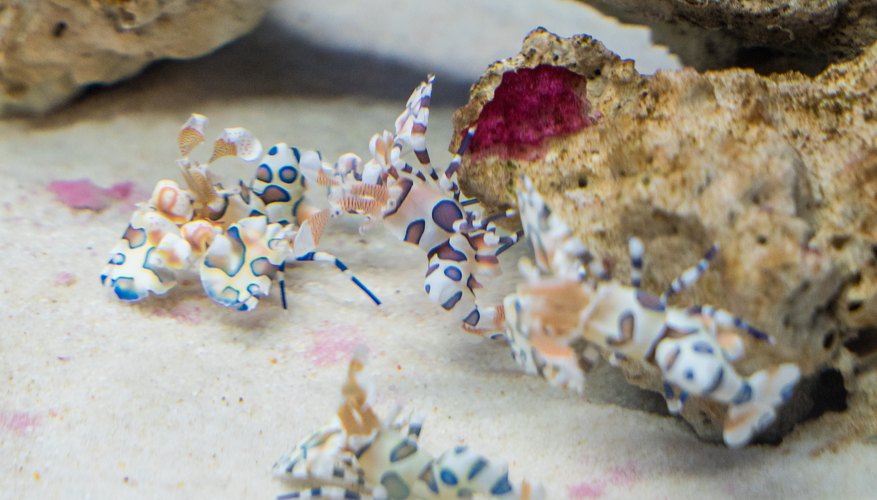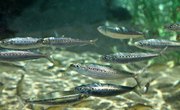
Freshwater prawn farming has been in existence for about 30 years and has only recently grown into a thriving business. Freshwater prawn farms are operated much in the same way as marine shrimp farms and face many of the same problems, such as poor water conditions, climate issues and predators. In order to raise freshwater prawns at home, you will need a large water source, such as a pond or several tanks, that can be monitored and adjusted easily.
Items you will need
Pond or storage tanks
Water conditioning chemicals
Prawns
Prawn food
Check to see what permits you need to raise freshwater prawns. Most states require that you obtain an aquaculture permit. Check with your local university's extension office or the U.S. Department of Agriculture to determine what you need.
Set up an area to raise freshwater prawns, such as a freshwater pond or large sheltered tanks. Verify that the water can stay aerated, with a steady temperature as well as maintainable levels for pH, water hardness and alkalinity. Do not add other creatures to the water in which you plan to cultivate freshwater prawns, at least not initially; the prawns will become food for larger creatures and will devour smaller creatures.
Order your shrimp from a reputable dealer. Check with various hatcheries and see if you can talk to some of their clients to find out who has the most successful offerings. Check for information about individual suppliers online; as of publication date, Kentucky, Tennessee, Texas and Mississippi had hatcheries offering juvenile prawns for purchase.
Determine how many prawns you need for your purpose; a typical stocking density averages between 16,000 and 24,000 shrimp per acre, depending on the size you want the prawns to be when it comes time to harvest them in the fall.
Obtain the proper feed for prawns. Search for feed that is specifically designed for prawns, such as a pelleted feed. Be prepared to feed your shrimp twice daily, usually in the early morning and around dusk, as prawns tend to be nocturnal.
References
Resources
Writer Bio
Based in Virginia Beach, Mark S. Baker has been working in editorial for more than 20 years. He has served as a writer and editor for publications such as the "Houston Post," "Boca Raton News" and "Interactive Week," among others. Baker also has a culinary arts degree from Johnson & Wales University and has his own catering business.



